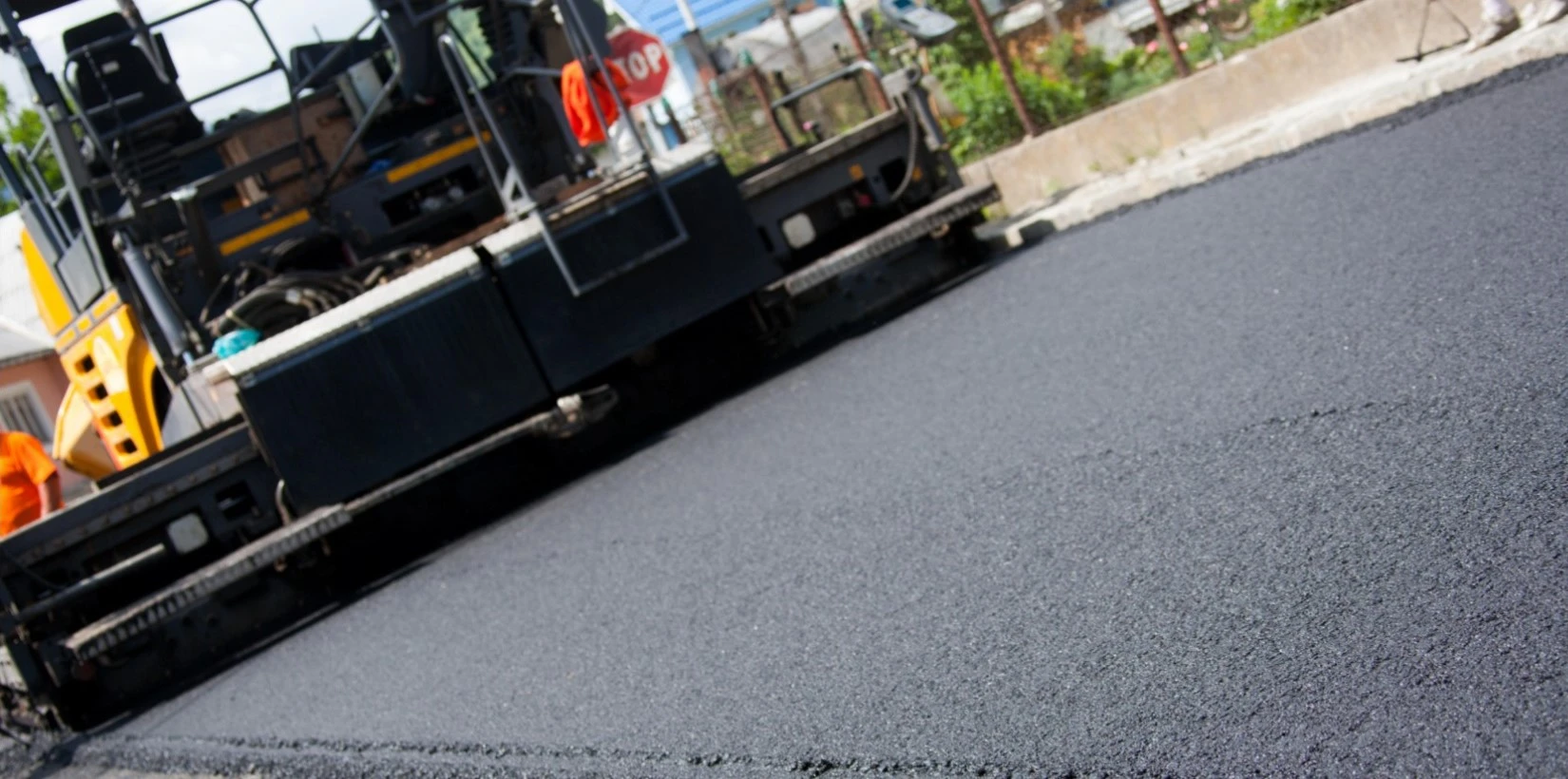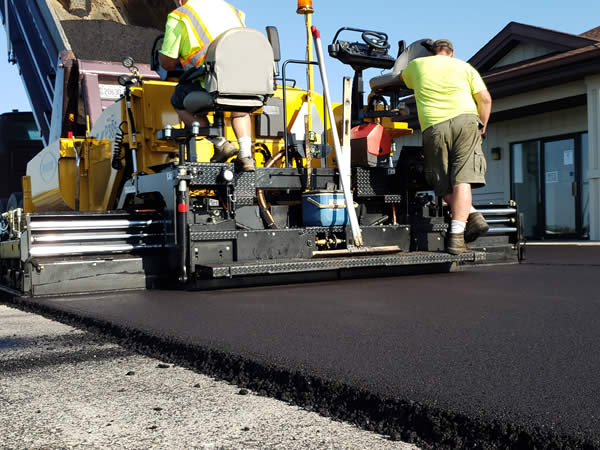Comprehensive Paving for All Property Needs
Comprehensive Paving for All Property Needs
Blog Article
Exploring the Various Kinds Of Asphalt Paving and Their Benefits
The landscape of asphalt paving incorporates a variety of kinds, each crafted to address details demands and environmental considerations. From the durable qualities of Warm Mix Asphalt to the environment-friendly attributes of Recycled Asphalt Sidewalk, understanding these alternatives can substantially influence project results. Advancements such as Warm Mix Asphalt and Porous Asphalt introduce additional layers of performance and sustainability. As we discover these different paving remedies, the nuanced benefits they offer may stun you and possibly alter your method to future paving jobs.
Hot Mix Asphalt
When considering one of the most reliable leading options, hot mix asphalt (HMA) sticks out as a leading option for several applications (paving service). HMA is a flexible paving material known for its toughness, flexibility, and general efficiency. It is created by heating asphalt binder and combining it with aggregates at high temperature levels, ensuring a consistent mix that can hold up against numerous ecological problems
Among the primary benefits of HMA is its capability to offer a smooth, skid-resistant surface, improving security for cars and pedestrians alike. In addition, HMA exhibits outstanding resistance to deformation, making it perfect for high-traffic locations such as highways and car parking whole lots. Its flexibility to various climates further adds to its prevalent usage.
The installation procedure of HMA is relatively fast, enabling effective project completion with marginal disturbance to web traffic. Moreover, it can be reused, lowering waste and advertising sustainability within the construction industry. Generally, hot mix asphalt remains a top selection for leading specialists because of its durable performance features and long-term cost-effectiveness, making it a reputable service for different framework demands
Cozy Mix Asphalt
Warm mix asphalt (WMA) supplies an ingenious option to warm mix asphalt, offering comparable advantages while calling for lower production temperatures. Commonly produced at temperatures in between 190 ° F and 250 ° F, WMA technology minimizes power usage and greenhouse gas exhausts during manufacturing, making it a much more eco-friendly choice.
This versatility can lead to boosted compaction and general resilience of the asphalt surface area. In addition, WMA can be used in various applications, ranging from highways to household driveways, without compromising efficiency.

The unification of additives or customized binders in WMA adds to its enhanced residential or commercial properties, ensuring that it meets or surpasses performance criteria. WMA's lowered thermal influence throughout manufacturing can lower the chance of damages to the surrounding setting, making it an enticing click option for sustainable paving practices.
Cold Mix Asphalt
Cold mix asphalt is a flexible leading service frequently used for short-term repair services and low-traffic areas. This kind of asphalt is created at ambient temperature levels, making it a hassle-free choice for fast fixes and tasks where typical hot mix asphalt might not be practical. The mix typically is composed of asphalt binder, aggregate, and additives, allowing it to stay practical for a prolonged period.
Among the key benefits of chilly mix asphalt is its convenience of application. It can be installed without specific devices, making it easily accessible for smaller professionals and DIY lovers. In addition, cold mix can be used in numerous climate condition, which is particularly useful for immediate repair service requirements.

It may not supply the very same long-term resilience as hot mix asphalt, its quick application and adaptability make it an outstanding option for short-term solutions and low-traffic applications. On the whole, cold mix asphalt continues to be a functional option in the asphalt paving landscape.
(view article)
Porous Asphalt
Permeable asphalt is a cutting-edge paving option designed to boost stormwater monitoring and decrease surface area overflow. This sort of asphalt features an unique framework that incorporates interconnected spaces, allowing water to penetrate via the surface and into the underlying layers. By assisting in all-natural water drainage, porous asphalt aids reduce the threat of flooding and reduces the concern on metropolitan stormwater systems.
One of the key benefits of permeable asphalt is its capability to enhance water top quality. As stormwater infiltrate the sidewalk, pollutants and debris are trapped, minimizing the number of contaminants that get in neighborhood waterways. This adds to much healthier ecological communities and sustains conformity with ecological regulations.
Additionally, porous asphalt can enhance the durability of the pavement itself. By decreasing water accumulation on the surface, it lessens the possibility for freeze-thaw cycles that can bring about cracking and wear and tear. Moreover, the minimized requirement for standard stormwater administration framework can lead to cost financial savings for municipalities and programmers.
Recycled Asphalt Pavement
(learn how)Recycled asphalt sidewalk (RAP) represents a lasting method to highway building and upkeep that profits both the environment and the economic situation. By reusing existing asphalt materials, RAP decreases the demand for brand-new raw products, which consequently saves all-natural resources and lessens ecological impact. This method reduces energy usage and greenhouse gas exhausts related to the manufacturing of brand-new asphalt.
The incorporation of RAP into brand-new sidewalk mixes can likewise bring about considerable price financial savings. Contractors can leverage recycled products to minimize general project expenditures, making it an economically practical choice for municipalities and private developers alike. Additionally, RAP provides comparable performance characteristics to virgin asphalt, ensuring durability and longevity in roadway surface areas.
RAP's convenience enables it to be used in different applications, including highways, parking area, and residential driveways. By improving the architectural integrity of existing sidewalks, RAP adds to improved safety and security and level of smoothness of streets.
Conclusion
Hot Mix Asphalt excels in durability and rapid installment for high-traffic areas, while Warm Mix Asphalt boosts sustainability via reduced energy intake. Cold Mix Asphalt serves as an economical option for immediate repair work, Porous Asphalt efficiently manages stormwater, and Recycled Asphalt Sidewalk advertises ecological responsibility.
Report this page